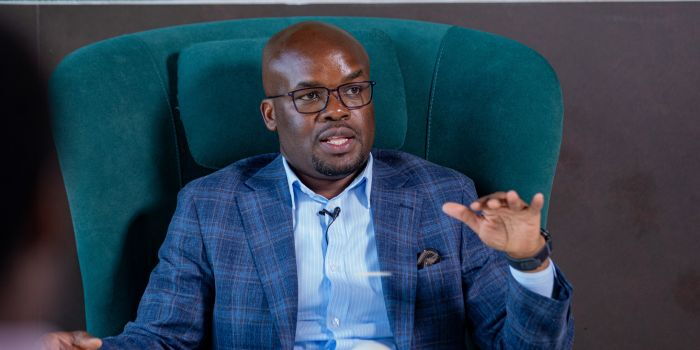Interior Principal Secretary Raymond Omollo has revealed that the government is accelerating a plan to introduce body-worn cameras for police.
Speaking during a roundtable interview with digital media, including Kenyans.co.ke, on Wednesday, December 18, Omollo asserted that this is one way the government plans to fight corruption.
The Ethics and Anti-Corruption Commission (EACC) has flagged corruption in traffic management as a major contributor to road safety violations, which often result in fatal accidents.
According to Omollo, the decision comes as the government mulls improving transparency in the force. “We are working on introducing body cameras,” PS Omollo said while responding to a question from Kenyans.co.ke. He added, “When people know someone is watching, people tend to be well-behaved.”
The PS, however, remained non-committal on whether the detectives from the Directorate of Criminal Investigations (DCI), who have been accused of perpetuating forced abductions, would be required to wear the cameras.
“We should look at it more broadly so that then we don’t take away the ability for officers to pick on something that would be good for public order and safety,” he asserted.
These devices, which provide an unbiased record of police-civilian interactions, are seen as crucial tools for ensuring transparency. By capturing every interaction, body cameras could deter officers from engaging in corrupt practices and offer a clear record of cases of misconduct.
In its report handed to President William Ruto in 2023, the Maraga Task Force identified corruption to be endemic in the National Police Service.
The report notes that corruption is deeply embedded in the institutional culture of the NPS, affecting various aspects such as recruitment, promotions, transfers, and procurement processes.
According to the Maraga Task Force, with rampant corruption and a culture of impunity, public confidence in the police service has been severely eroded, leading to skepticism about the effectiveness of past reform initiatives.
The PS did not offer a timeline for when Kenyans can expect to see police in body cameras. However, he pushed back on the assertions that the government is condoning corruption.
During his vetting in August, the Inspector General of Police, Douglas Kanja, told legislators he plans to introduce body cameras as part of his police reforms.
Kanja pledged to bring sweeping changes to the National Police Service, starting with the introduction of body-worn cameras, particularly for traffic officers.
According to our analysis, it will cost the government north of Ksh64 billion to purchase the cameras and the infrastructure needed for the 61,165 officers in the Kenya Police Service as of December 2020.
Interior PS Raymond Omollo during an interview with digital journalists, Wednesday, December 18.
Photo
Kenyans.co.ke


